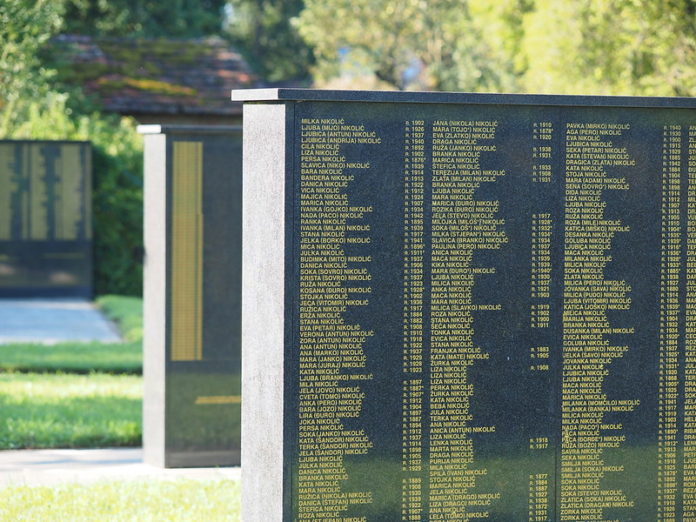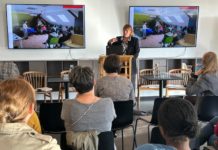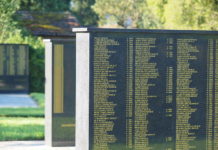Many young people in Bosnia and Herzegovina, Croatia, Kosovo, and Serbia have minimal knowledge of legally recognized genocides that occurred in the region. These topics are rarely included in school curricula, and public discourse is often marked by misinformation, trivialization, or even denial, sometimes by high-ranking officials. In such an environment of fragmented historical memory and limited education, young people lack both the tools and ongoing opportunities to engage with the past and confront hate speech critically. Modern education about genocide is essential for preventing the repetition of historical tragedies. It helps youth understand the mechanisms of hate speech and totalitarian regimes, while fostering a sense of responsibility to protect human rights and uphold democracy.
In response to this need, the new project “Youth Empowerment Through History” has been launched in four Western Balkan countries—Bosnia and Herzegovina, Croatia, Kosovo, and Serbia. The project focuses on deepening young people’s understanding of three major atrocities of the 20th century: the Holocaust, the genocide of the Roma (Samudaripen), and the genocide in Srebrenica.
Over the next two years, the project will bring together educators, historians, activists, and youth from the region to develop modern educational materials and strengthen a shared culture of remembrance regarding these three legally recognized genocides.
We invite educators, teachers, professors, activists, and youth workers with at least two years of experience working with young people to take part in the development and testing of new educational resources.
Together, we will create innovative learning materials – interactive lessons based on documentary films, graphic novels illustrating survivor stories, and modules featuring first-person testimonies – aimed at strengthening remembrance and passing these important lessons on to new generations. Participants will be trained in contemporary EU educational methodologies, including One World in Schools (OWIS)and Stories of Injustice. These methods equip educators with the skills to sensitively and effectively teach about the Holocaust, Samudaripen, and the Srebrenica genocide, while fostering critical thinking and combating misinformation.
In addition to workshops in Pristina and Sarajevo, participants will have the opportunity to test these materials in their local communities. The most active participants will also be invited to study visits to memorials in Zagreb, Prague, and Auschwitz-Birkenau—deepening a shared historical perspective through direct experience. Your knowledge, experience, and dedication can drive lasting change in the region. Join us in building a more tolerant, critically aware Western Balkans where young people proudly carry the torch of memory and human rights.
Applications are open until the 3rd of June 2025, and participation is limited. Apply via the link HERE or contact us at yehproject25@gmail.com for more information. By building a network of educators, this project aims to continue its impact beyond its formal end. A best practices report will be published, and the complete educational toolkit will be made available to schools and organizations across Europe.
The importance of the “One world in schools” methodology
One World in Schools (OWIS) is an innovative educational approach that uses documentary films and related activities to educate and empower the next generation of active citizens. By combining critical thinking and civic engagement with the visual power of film, OWIS is currently used in 14 countries worldwide. It was developed by the Czech organization People in Need in 2001 as an extension of its human rights documentary film festival of the same name.
Interactive teaching methods—such as film screenings and group discussions—significantly enhance knowledge retention and student engagement. The concept of “edutainment,” blending education and entertainment, fosters lasting interest and creativity among youth.
Hundreds of secondary school teachers and educators will first attend training sessions on the OWIS and Stories of Injustice methodologies. While OWIS uses documentaries to encourage critical reflection, Stories of Injustice brings authentic human experiences into classrooms through survivor testimonies. Both methods emphasize active learning, media literacy, and gender-aware approaches to the experience of persecution. Youth aged 15 to 24 will have the opportunity to participate in OWIS workshops, followed by study visits to sites of atrocities, memorial centers, and monuments in Bosnia and Herzegovina, Croatia, Kosovo, Serbia, Poland, and the Czech Republic—transforming abstract history into a powerful personal experience.
This project is implemented by the international organization People in Need in partnership with the Roma Union in the Republic of Croatia “KALI SARA” and the Youth Initiative for Human Rights in Bosnia and Herzegovina.
The project is funded by the European Union under the Citizens, Equality, Rights and Values (CERV) programme. Views and opinions expressed are however, those of the author(s) only and do not necessarily reflect those of the European Union. Neither the European Union nor the granting authority can be held responsible for them.












